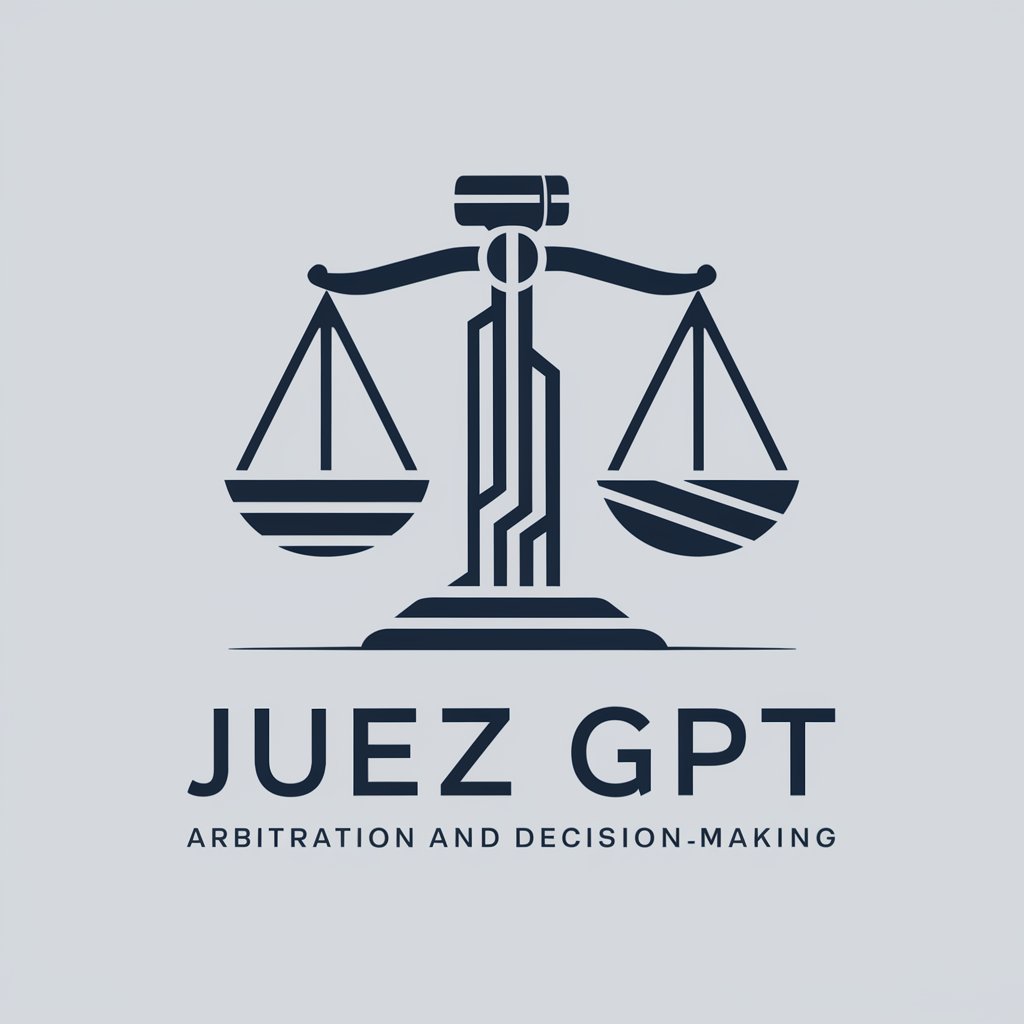4 GPTs for Negotiation Assistance Powered by AI for Free of 2026
AI GPTs for Negotiation Assistance refer to advanced artificial intelligence tools based on the Generative Pre-trained Transformer (GPT) framework, specifically designed to aid in various negotiation scenarios. These tools leverage the power of machine learning and natural language processing to understand, generate, and tailor communication in real-time, making them highly relevant for facilitating negotiation processes. By analyzing language patterns, context, and specific negotiation strategies, these GPTs provide users with insights, suggestions, and even automated responses, thereby enhancing negotiation outcomes.
Top 4 GPTs for Negotiation Assistance are: JUEZ GPT,Защита прав потребителей,GPT-Mediator,SteelmanGPT
JUEZ GPT
AI-Powered Justice at Your Fingertips

Защита прав потребителей
Your AI-Powered Legal Advisor for Consumer Rights

GPT-Mediator
Empowering Resolution with AI Mediation

SteelmanGPT
Bridging Divides with AI-Powered Mediation

Key Capabilities of Negotiation Assistance GPTs
AI GPTs for Negotiation Assistance boast several unique features that set them apart. Their adaptability allows them to handle a range of tasks from simple conversational support to complex negotiation strategy formulation. Special features include advanced language understanding, real-time response generation, scenario-based training, and the ability to learn from past negotiations. Moreover, they can offer technical support, conduct web searches for relevant information, create visual aids, and perform data analysis to inform negotiation strategies.
Who Benefits from Negotiation Assistance GPTs
These tools cater to a wide audience, including negotiation novices seeking guidance, professionals aiming to refine their strategies, and developers looking to integrate advanced AI into negotiation platforms. They are designed to be accessible to users without programming knowledge while offering extensive customization options for tech-savvy individuals, thus broadening their applicability across various expertise levels in the negotiation domain.
Try Our other AI GPTs tools for Free
Justice Evaluation
Discover how AI GPTs for Justice Evaluation revolutionize legal analysis and decision-making, offering tailored insights for professionals across the justice sector.
GPT Configuration
Discover the power of AI GPTs for GPT Configuration, the ultimate tools for customizing Generative Pre-trained Transformers to meet specific needs and enhance efficiency across various domains.
Sector-Specific Insights
Unlock tailored industry insights with AI GPTs, designed to provide actionable data and solutions for your sector.
Kubernetes Learning
Unlock the full potential of Kubernetes with AI GPTs. Tailored learning experiences, real-time support, and up-to-date insights make mastering Kubernetes accessible for all.
AI-Powered Education
Explore AI GPTs for AI-Powered Education: revolutionizing learning with advanced, adaptable AI solutions for personalized education and interactive tutoring.
JavaScript Programming
Discover how AI GPTs for JavaScript Programming can revolutionize your coding experience with advanced AI tools designed to optimize code generation, enhance learning, and streamline development workflows.
Broader Applications and Integration of Negotiation GPTs
Negotiation Assistance GPTs are not only tools for direct negotiation support but also serve as integral components in broader business ecosystems. They offer user-friendly interfaces that non-technical users find approachable, and their flexibility allows for integration into existing systems, enhancing workflows and decision-making processes across various sectors, including sales, diplomacy, and legal negotiations.
Frequently Asked Questions
What exactly are AI GPTs for Negotiation Assistance?
They are AI tools based on the GPT framework, tailored to assist in negotiation by generating and analyzing language in real-time to improve outcomes.
How can GPTs enhance negotiation processes?
GPTs can provide real-time suggestions, analyze conversational context, and help formulate strategies based on historical data and current trends in negotiation tactics.
Are these tools suitable for beginners in negotiation?
Yes, they are designed to be user-friendly and provide valuable insights and guidance, making them suitable for novices.
Can developers integrate these GPTs into existing negotiation platforms?
Absolutely, GPTs offer APIs and customization options that allow for seamless integration into various negotiation and communication platforms.
Do GPTs for Negotiation Assistance require programming skills to use?
No, they are designed to be accessible to non-programmers, with intuitive interfaces and guidance for effective use.
How do these GPTs adapt to different negotiation scenarios?
They use machine learning to analyze past negotiations and adapt their responses and suggestions to fit a wide range of scenarios and styles.
Can these tools handle complex, multi-party negotiations?
Yes, their advanced algorithms and data processing capabilities enable them to manage and facilitate discussions in complex, multi-party negotiations.
Are there any privacy or security concerns with using GPTs for negotiation?
While GPTs are designed with security in mind, users should ensure they comply with relevant privacy laws and guidelines, especially when handling sensitive information.